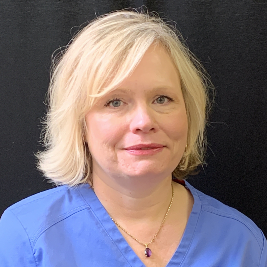What does it actually mean to be healthy? Have you stopped to consider the state of your personal health? Have you asked yourself if you are healthy or not? The answer to this particular question depends on how you define health and, as it turns out, there is no hard and fast rule when it comes to the definition of “good health.” Does health mean low blood pressure? It can. Does being healthy mean that you lack any evidence of disease? Probably. What if your body is free from any detrimental health conditions yet your mind and soul are in turmoil? Do you get adequate rejuvenating sleep each night? Are your personal relationships satisfying in a way that uplifts and brings life to who you are? In order to understand how to be healthy, one must look deeper within.
Clearly, defining how to be healthy is an incredibly complex one.
As you see, how you define health will determine what you consider healthy. Innova Primary Care is dedicated to the health of the entire individual. We do not believe that good health refers merely to the absence of disease. We account for all parts of the individual when meeting with each of our patients because everyone has a unique history comprised of individual experiences, genetic components, and environmental factors. In essence, you are a complex being and more than the mere sum of your parts.
The World Health Organization states: “Health is a state of complete physical, mental and social well-being and not merely the absence of disease or infirmity.” Theis was later expanded by the organization to note that health is: “A resource for everyday life, not the objective of living. Health is a positive concept emphasizing social and personal resources, as well as physical capacities.” Notice that good health encompasses more than the ability to run a mile, adequate blood sugar, etc. The purpose of good health is to add value to your life. It is a complex topic, and as society grows, so does its meaning. However, while the definition may feel esoteric, there are certain elements which, when combined, create great health. Take a look at the “pillars of health” which when in alignment have a tremendous effect on your health.
To be healthy, it takes more than just knowing your numbers (cholesterol, blood sugar, BMI). Many experts agree that there are “pillars of health” that work together to create optimal living. These include sleep, movement, nutrition, and relaxation. Think of health as a table with 4 legs. If one out of balance, the table falls. This goes for each of the pillars. It is important to balance each pillar.
Sleep

Gone are the days when you could boast about being able to accomplish 24 hours’ worth of work on just 4 hours of sleep. It has been proven that sleep has an incredible impact on health. Don’t believe us? Try going more than a few days with little rest and then consider how able you are to perform your daily tasks and invest in relationships. Without sleep, your brain will not function properly.
Your ability to learn and retain information is depleted without proper rest. Lack of sleep has been shown to have a detrimental effect on decision making, problem-solving, and even affects emotions and behavior.
Your physical health suffers when you do not sleep as well. Decreased sleep increases the risk of obesity, cardiovascular disease, high blood pressure, and stroke to name just a few. It is during long periods of rest that your body does the work of healing itself and without proper time, your body’s ability to repair itself. Do you ever feel hungrier or have cravings after a sleepless night? The reason for this is because sleep also plays a significant role in hormone regulation. If you do not get enough sleep, your hunger hormones kick into overdrive leaving you irritable and snacking the day away. Do yourself a favor and make sleep a priority.
Nutrition
It is well known that eating nutrient dense foods pack a powerful health punch. However, the food you eat impacts virtually everything else too. Food can be a powerful preventive measure that has a wide-reaching impact on the state of your physical, emotional, and mental health. How much you eat and when is an essential aspect of making wise food choices so is the quality of the food you are consuming. Before you dive into your next meal or snack, stop for a moment and consider how this will affect your goals to be healthy. Will they serve you in a positive way or will they cause adverse effects? Do you need help navigating food choices? If so, Innova Primary Care offers wellness services to our current patients. We can help you learn the best ways to nourish your body and regain control over your relationship with food again.
Relaxation

Stress plays a huge role in your health. It can lead to physical symptoms such as headaches, fatigue, chest tightness, and sleep disruptions. You may experience stress-related anxiety, loss of motivation, depression, and feel like things are out of control. For many, the signs of stress show themselves with changes in behavior such as loss of appetite, and substance abuse. Clearly, stress management is a crucial component of health. Mindful relaxation is a great way to reduce the stress in your life and can be achieved in minutes a day. You do not have to meditate for hours on end to reach a relaxed state. Begin with a few moments of concentrated deep breathing. Focus on your breath going in and out and try to push aside the concerns of the moment.
Movement
You were created to move. The sedentary lifestyle of too much sitting and little to no exercise has become the norm, but it does not have to be this way for you. The CDC recommends that adults get at least 150 minutes of moderate exercise a week. You do not have to run a marathon. You don’t have to pour hours into classes in the gym. Thirty-minutes of exercise a day will do the trick. You can always do more and be sure to include strength training activities as a part of your regimen.
Good health is much more than the absence of disease. It is a state of being that encompasses your physical, mental, and emotional state. The great news is you have so much control over how you feel and the choices you make that contribute to your overall health. Eat well, move more, take steps to reduce stress, and get sleep. These are strong steps that can make a tremendous difference in your life in order to truly be healthy.



 About
About

 About
About About
About About
About
 About
About About
About

 About
About About
About About
About About
About











